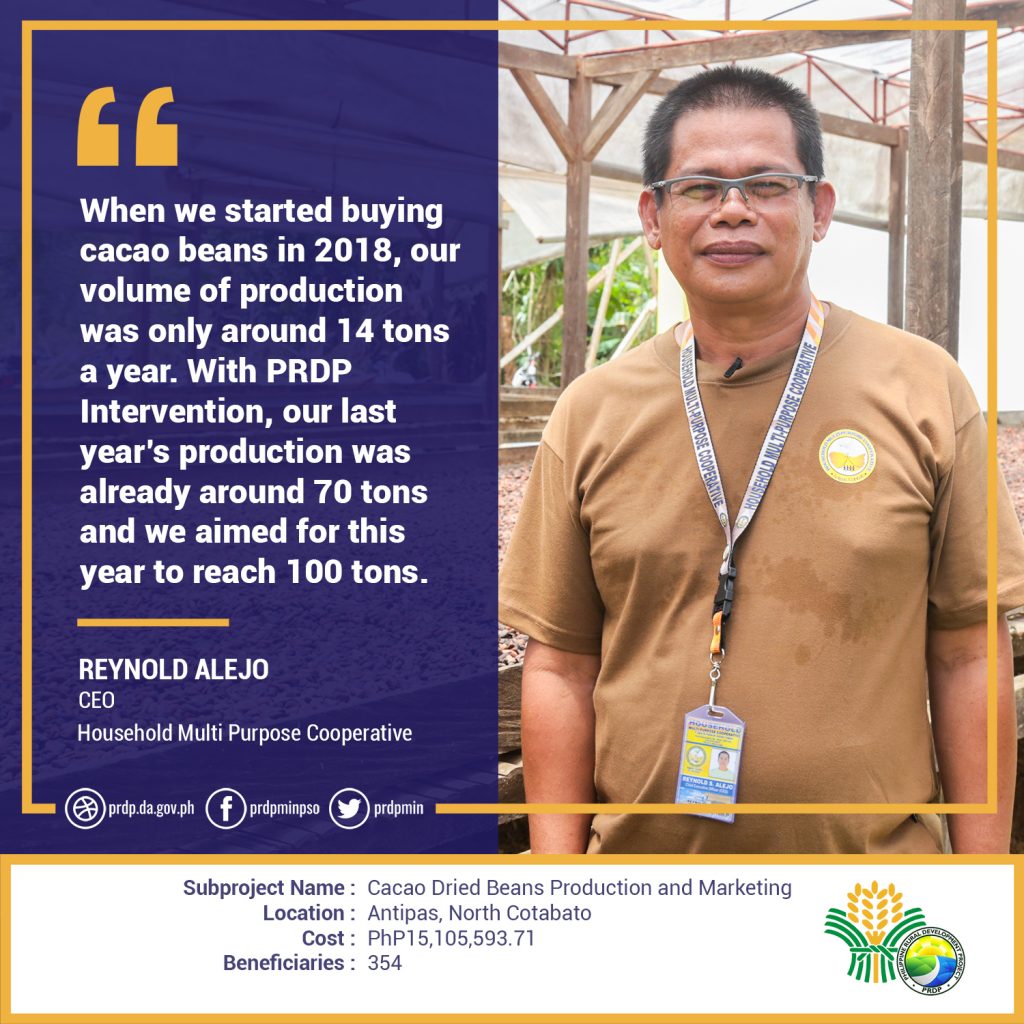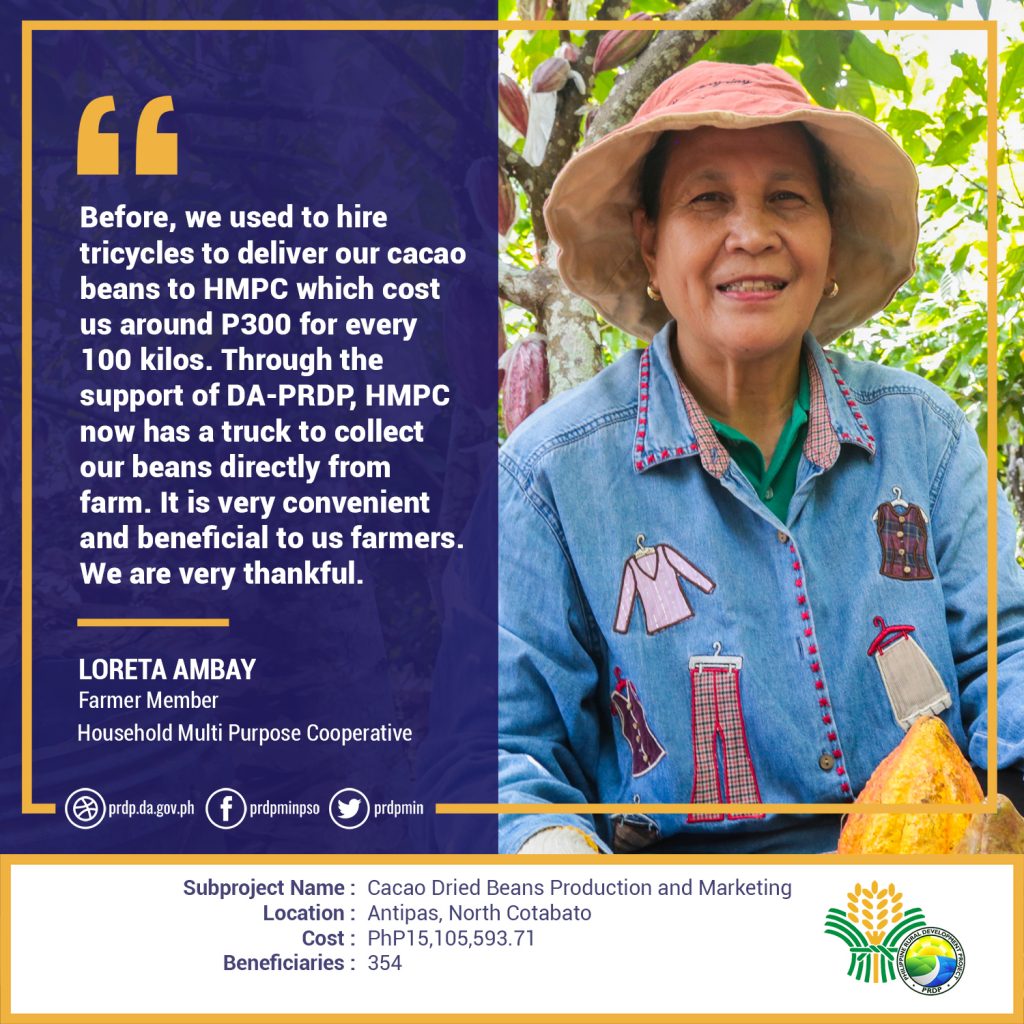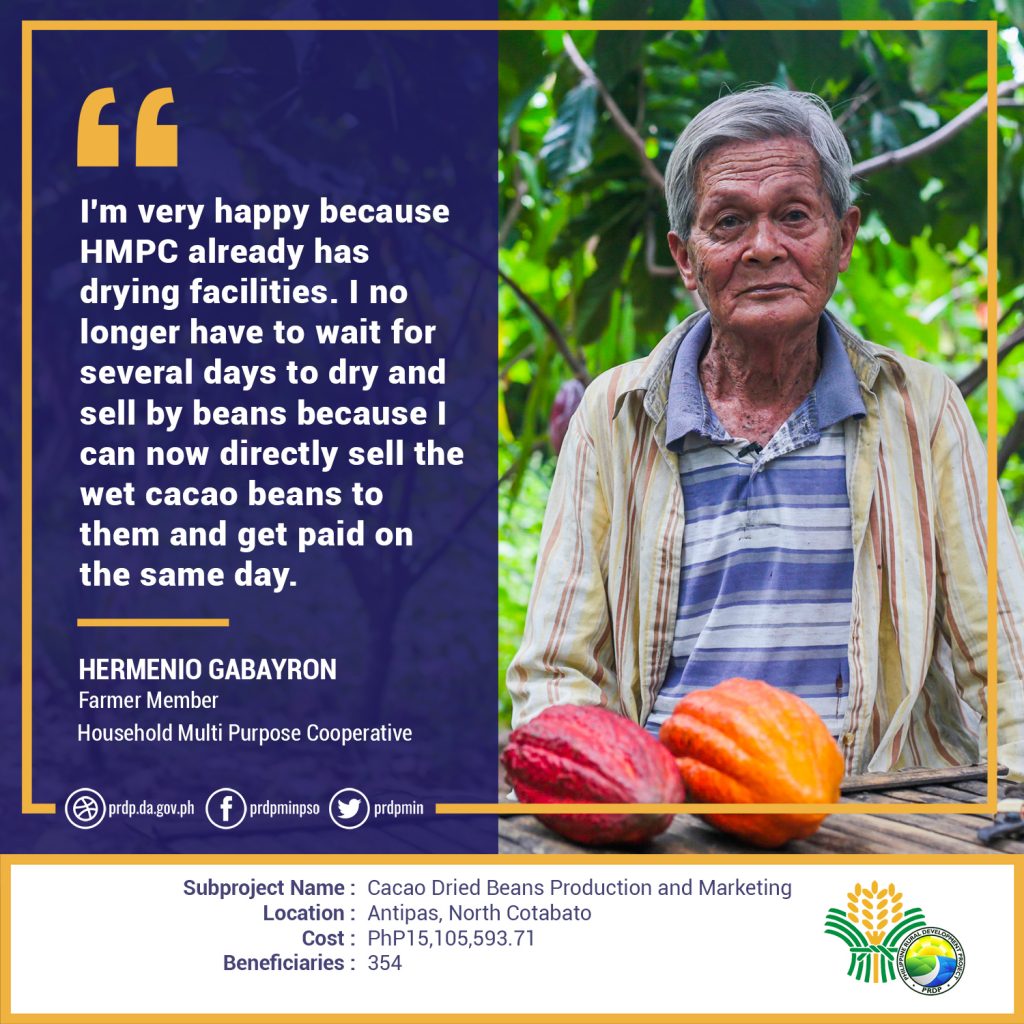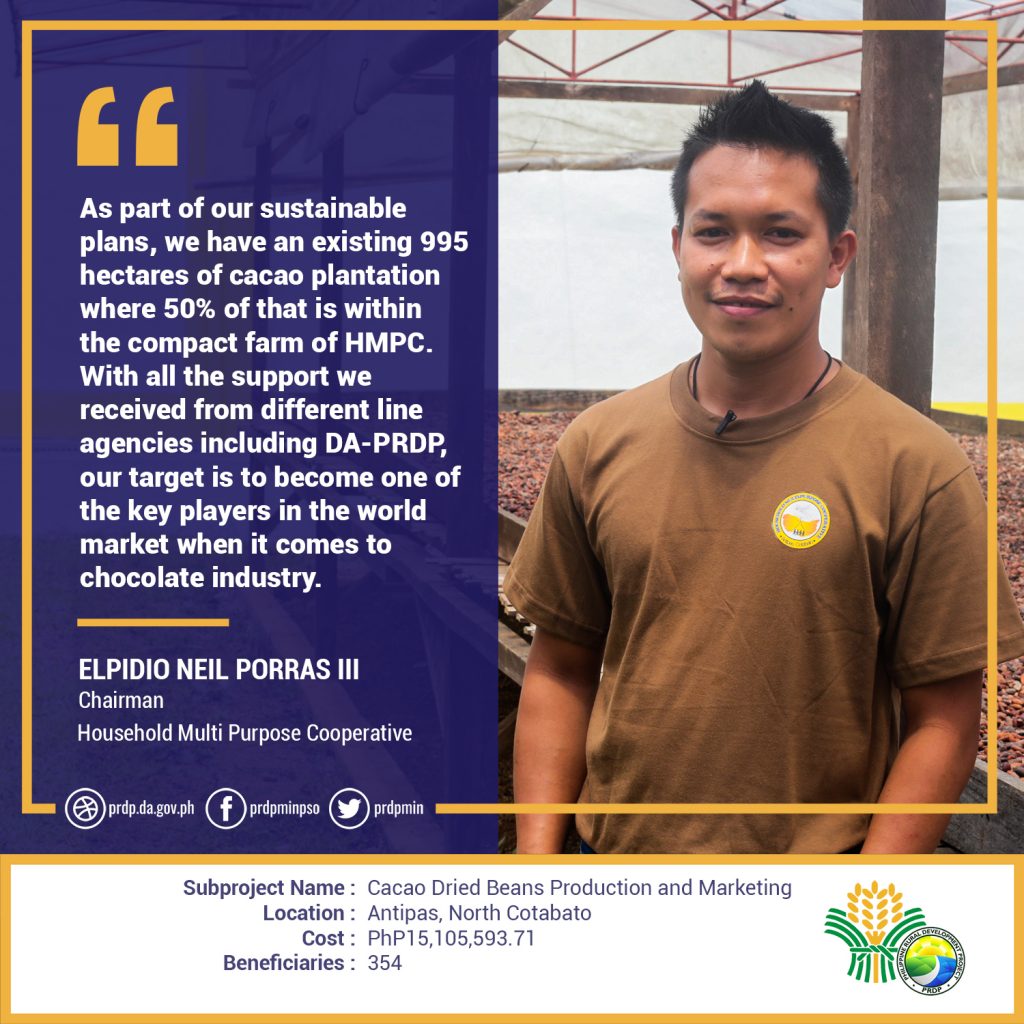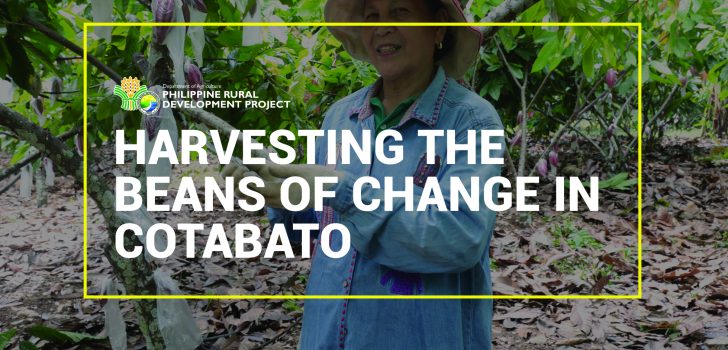
Harvesting the Beans of Change in Cotabato
At the heart of the Arakan Valley in Southern Philippines lies the municipality of Antipas. Bounded by the municipalities of Magpet, Arakan, President Roxas, and Matalam, this municipality plays a pivotal role in the economic development of this area of Cotabato.
While rubber, banana, rice and corn are some of the major crops grown here, cacao is fast becoming the beans of change for smallholder farmers in Antipas and its neighboring towns.
Household Multi-Purpose Cooperative (HMPC) started as a household savings and credit cooperative way back in 2001. It was founded by 36 pioneer members with their initial capital of P22,000 pesos.
In previous years, the cooperative experienced several challenges where more than 400 hectares of their farm was hit by El Nino, and most of their farmers who used to plant corn suffered from low market prices. Faced with these challenges, HMPC decided to find better solutions to aid their farmer members.
In 2014, they decided to venture into cacao production where they gave 2,000 hills of cacao seedlings to its farmer members. HMPC also received interventions from ACDI/ VOCA and DA Bottom-up Budgeting (BuB) Program which included facilities for drying their cacao beans.
As they started to produce more cacao, it became apparent that their drying facilities were no longer sufficient and they saw the need of having their own storage facilities including a hauling truck in transporting their products to its buyer. So, they, proposed the “Dried Cacao Beans Production and Marketing” subproject to Department of Agriculture-Philippine Rural Development Project.
This enterprise subproject worth P15 million includes storage warehouse, mechanical dryer, hauling trucks, and P1 million working capital that will provide them better access to improve equipment and facilities.
According to HMPC Chief Executive Reynold Alejo, their biggest problem was the storage facilities and mechanical dryer for their cacao beans.
“We decided to send our proposal for the cacao subproject to PRDP because we really didn’t have the storage facilities to keep our beans while waiting for our target volume of delivery to Davao City. During the rainy season, drying our beans was also one of the biggest challenges we encountered. We are glad that DA-PRDP granted us this project,” said Alejo.
This subproject is currently 92.87% completed and project beneficiaries are now starting to feel the positive impact of the project into their livelihood.
“When we started buying cacao beans in 2018, our volume of production was only around 14 tons a year. With DA-PRDP Intervention, our last year’s production was already around 70 tons and we aimed for this year to reach 100 tons.” said Alejo.
HMPC recently received the one unit hauling truck and one unit delivery truck which was turned over to them during the 39th founding anniversary of Antipas. Prior to that, they already received the P1 million working capital intended for buying wet cacao beans, then crates, and drums while the mechanical dryer and warehouse are still under construction.
“Through all these supports from DA-PRDP we are able to compete with the market. The trucks will be used in collecting the beans from our farmers. Instead of them coming to us, we will be the one who will collect it directly from their area for free,” added Alejo.
Loreta Ambay, one of the members of Household Multi-Purpose Cooperative who also owns her own cacao farm, shared her story on how she benefited from the project granted by DA-PRDP to HMPC.
“Before, we used to hire tricycles to deliver our cacao beans to HMPC which would cost us around P300 for every 100 kilos. Through the support from DA-PRDP, HMPC now has a truck to collect our beans directly from farm. It is very convenient and beneficial to us farmers,” said Ambay.
HMPC conducts regular visits to their farmer members per cluster depending on their area so that they can collect the beans directly from the farmers at no additional cost. This means that farmers like Loreta Ambay will no longer have to pay for additional cost in transporting their beans. Instead they can keep the P300 pesos or more they would spend for delivery. The 83 years old Hemenio Gabayron expressed his gratitude upon learning that there will be a mechanical dryer for HMPC. In past years, he used to dry his beans by laying them under the sun in his backyard.
“It’s really good that HMPC now has a mechanical dryer. I no longer have to wait for several days to dry and sell my beans because I can now directly sell the wet cacao beans to them and get paid on the same day,” said Gabayron.
This enterprise project aims to engage in wet cacao beans bulk buying where HMPC will be the one to produce the dried fermented cacao. The cooperative’s dried fermented cacao beans will be delivered to Kennemer Foods International as the institutional buyer.
One of the good things that HMPC initiated is to have their own compact farm and nursery of 140 hectares where 50 hectares is already productive.
HMPC’s farm consolidation and compact farming is actually aligned with the direction of DA Secretary William Dar on Farm and Fisheries Clustering and Consolidation (F2C2.)
“We started our compact farming by planting banana lakatan for temporary shading and after six months, we planted cacao. As to the permanent crop, we decided to plant coconut for permanent shading also,” said Alejo.
Through these interventions from DA-PRDP, HMPC is able to compete in the market where they can now cater larger volume of cacao beans that they can transport using the closed delivery van from PRDP.
HMPC Chairman Elpidio Neil Porras III in his message said, “with all the support we received from different line agencies including DA-PRDP, we hope to become one of the key players in the world market when it comes to the chocolate industry.”
In his message, Antipas Mayor Egidio Cadungon, Jr. said that this PRDP subproject really helps in the peace and order of their municipality because it created livelihood to many locals here. Insurgency problem is addressed by providing them with livelihood opportunities.

